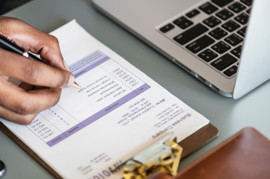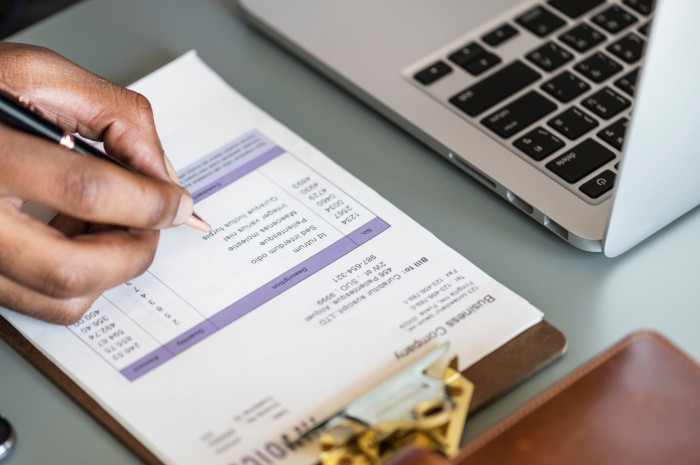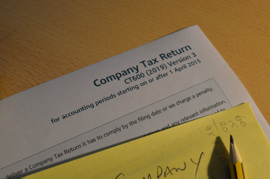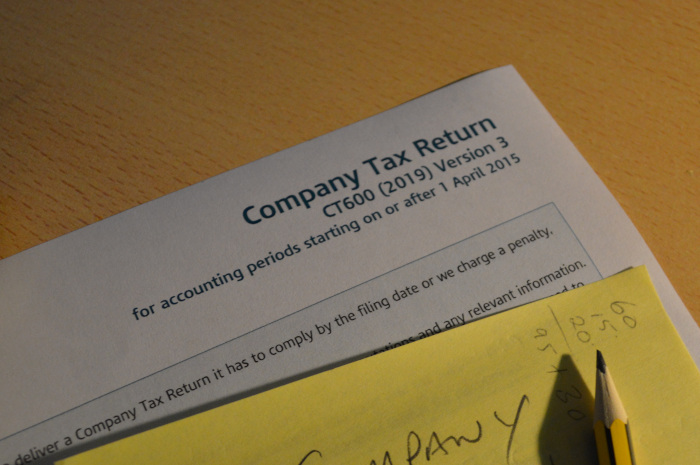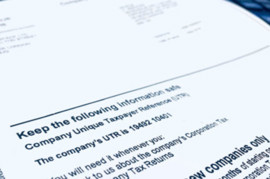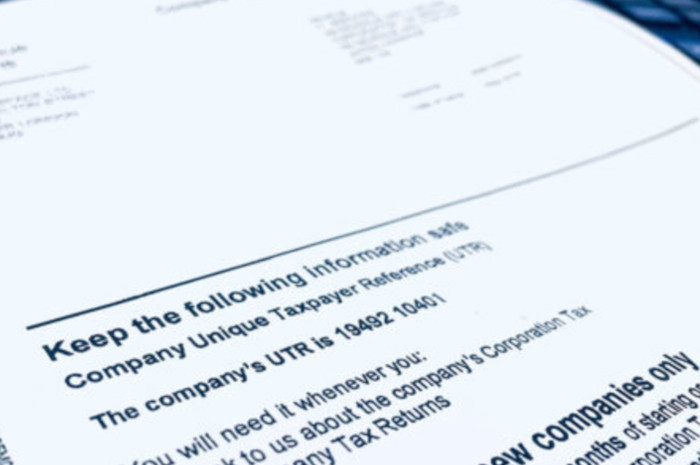Filing your corporate tax return and self-assessment tax return by the deadline is crucial to avoid penalties and interest charges. In this blog post, we will explore what happens if you file a late tax return. We'll delve into the reasons you may receive a penalty; penalties imposed by His Majesty’s Revenue and Customs (HMRC) and provide helpful tips to ensure timely submission.
Reasons why you might receive a penalty
There are several reasons why HMRC might impose a penalty on you. The primary reasons include:
- Late payment of tax due - Corporate Tax and Self-Assessment tax must be paid before the deadline or you will face tax return penalties.
- Failure to notify HMRC you need to make a tax return - you must notify HMRC if you either carry out, or intend to carry out any taxable activity.
- Failure to retain full and proper records - these are essential in enabling you to deliver correct and complete tax filings.
- Not contacting HMRC about changes that affect your tax liability - you must do this within one month of the change or you could face charges.
What penalties are imposed by HMRC?
1. Corporate penalties for filing taxes late
When filing taxes late, HMRC implements penalties based on the length of time. The penalty currently stands at:
If you file your return one day late, you will face a penalty of £100.
After three months, if you have still not filed your return, you will face another £100 penalty.
HM Revenue and Customs will estimate your Corporation Tax bill if you have not filed one within six months of the due date. They will then add a penalty of 10% of your unpaid tax. HMRC will contact you with your ‘tax determination’, and this cannot be appealed. You should pay the tax due and continue to file your tax return. Once this has been received, HMRC will recalculate your interest and any charges you may still owe.
If you pass 12 months after the due date and have still yet to file your tax return to HMRC, you will face another penalty of 10% of your unpaid tax.
It’s important to note that if you fail to meet your deadline three times in a row, your £100 tax return penalties will increase to £500 each.
2. Interest on late payments
In addition to penalties, HMRC also charges interest on any outstanding tax amounts. The current interest rate is 5%. Interest starts accruing from the due date of your return until the day you settle your tax liabilities in full. To avoid unnecessary interest charges, it's best to file your tax return promptly.
3. Late tax return penalties for Self -Assessment (Individuals)
Not submitting by the deadline: If you do not submit your tax return by the deadline (usually January 31st for the previous tax year), you face an automatic penalty. The penalty for late tax filing starts at £100 if the return is 1 day late. If the return is more than 3 months late, additional penalties can apply. After 6 months, there is a further penalty of 5% of the tax due or a minimum of £300 (whichever is greater). The longer the return is overdue, the higher the penalty.
| Late Filing | Penalty |
| Miss filing deadline | £100 - Applied immediately |
| 3 Months late | Daily penalty of £10 per day for up to 90 days (Maximum £900) |
| 6 Months late | 5% of tax due or £300 (Whichever is greater) |
| 12 Months late | A further 5% of tax due or £300 (Whichever is greater) |
Late payment penalty: If the tax due is not paid by the deadline (usually January 31st for the previous year), tax return penalties will apply.
| Late Payment | Penalty |
| After payment is 30 days late | 5% of tax outstanding |
| 6 Months late | A further 5% of tax outstanding |
| 12 Months late | A further 5% of tax outstanding |
Taking the total penalty for late payment up to 15% of the tax due if unpaid after a year.
Interest on late payment: Like with corporations, interest is charged on unpaid tax from the due date until it's paid.
4. Avoid late filing penalties
The most effective way to steer clear of late tax return penalties is to submit your tax return on time. However, if you anticipate missing the deadline and filing your tax return late, it's crucial to contact HMRC as soon as possible. They may grant you an extension for filing your return, depending on your circumstances. Open communication with HMRC can help mitigate the tax return penalties.
5. Appealing a late filing penalty
If you have a reasonable excuse for filing your tax return late, you have the option to appeal the penalty imposed by HMRC. Valid excuses may include illness, a family bereavement, or even a natural disaster. To initiate the appeal process, you must complete Form 843, which is the Claim for Refund and Request for Abatement. Ensure that you provide all relevant details and supporting documentation to strengthen your case.
Inability to Carry Back Losses
In some cases, you may be able to carry a business loss back to offset against previous years' profits (and claim a tax refund). Filing your tax return late could prevent you from claiming this, as there are deadlines for loss carryback claims; typically, within 2 years of the end of the accounting period.
Example: For self-employed individuals or business owners, if you're filing your tax return late, you may miss out on valuable capital allowances or investment reliefs that could reduce your taxable income for the year. So, filing your tax return late can directly impact your ability to take full advantage of the opportunities available and impose tax return penalties. For further information about using losses and moving losses between periods, please see our
losses article
.
Tips for timely tax filing
Filing taxes on time is a simple matter of staying organised and planning ahead. By knowing your deadlines, using online tools, keeping records up to date, and setting reminders, you can avoid the stress of last-minute tax filing and ensure you avoid any unnecessary tax return penalties or interest charges.
Know your deadlines: Your Corporation Tax return
(CT600) must be filed with HMRC within 12 months of the end of your accounting period. For example, if your accounting period ends on 30 November 2024, your Corporation Tax return must be filed by 30 November 2025. The tax payment is due 9 months and 1 day after the end of your accounting period. So, for a year ending on 30 November 2024, you must pay the tax due by 1 September 2025.
Start early: Avoid the last-minute rush by commencing your tax preparation well in advance. This will provide ample time to gather all necessary documents and ensure accurate tax filing.
Collect all documents: Gather essential tax documents as well as other business income and expense records. Having these organised throughout the year will streamline the tax filing process. HMRC will contact you in a number of ways (phone, email, letters etc.) so, it is important to keep on top of this.
Utilise tax preparation software: Take advantage of user-friendly tax preparation software programs available in the UK. They can simplify the calculations and assist in completing your tax return accurately and efficiently.
File electronically: opt for electronic filing, as it is the fastest and easiest method. HMRC's online platform allows for the secure and convenient submission of your tax return. You can also file through our
easy-to-use tax filing software, which is designed to guide you throughout the process.
File even if you don’t have all documents: File based on what you have available at the time, you have up to 12 months from 31 January following the end of the tax year to which the tax return relates to make the amendments.
How to rectify with HMRC
Contact HMRC: If you're facing financial difficulties or a reasonable excuse for the delay, contact HMRC as soon as possible to explain the situation. In some cases, HMRC may reduce or cancel the penalties if there is a valid reason for them receiving the tax return late.
Consider a Time to Pay Arrangement: If you can’t pay the full amount of tax due right away, you may be able to set up a Time to Pay arrangement with HMRC. It is advised to contact HMRC about the situation ahead of time to let them know about your cash flow issues, rather than waiting for them to contact you. This allows you to pay your tax due in instalments over an agreed period.
Appeal Penalties: If you believe the penalties were applied unfairly, you can appeal to HMRC. If you have a valid reason for being late (e.g., serious illness, unexpected circumstances), HMRC may accept the appeal and reduce or cancel penalties.
Ensure Future Compliance: To avoid further late filings, set reminders for next year’s deadlines, and consider using tax software or a professional accountant to help ensure timely submission and simple tax filing in the future.
Filing your tax return on time is essential to avoid penalties and interest charges in the UK. By understanding the penalties for late filing, exploring options to avoid them, and following the provided tips for timely submission, you can ensure a smoother tax filing experience. Remember, early preparation, open
communication with HMRC, and leveraging digital resources such as our
Tax Return Software can help you stay compliant and maintain financial peace of mind.
Read more here if you want to learn how Easy Digital Filing can help you file your taxes in time and how we can help if you are filing your tax return late.
This article is information only and has been prepared for general guidance on matters of interest only, and does not constitute legal, accounting, tax, investment or other professional advice or services. You should not act upon the information contained in this article without obtaining specific professional or legal advice. No representation or warranty (express or implied) is given as to the accuracy or completeness of the information contained in this article, and, to the extent permitted by law, Comdal Limited, its members, employees and agents do not accept or assume any liability, responsibility or duty of care for any consequences of you or anyone else acting, or refraining to act, in reliance on the information contained in this publication or for any decision based on it.




